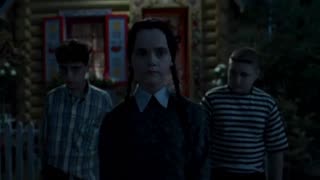Premium Only Content

Start Me Up Paint It Black Hang Fire Emotional Rescue The Rolling Stones
Start Me Up Album: Tattoo You (1981)
Paint It Black Album: Aftermath (U.S.) (1966)
Hang Fire Album: Tattoo You (1981)
Emotional Rescue Album: Emotional Rescue (1980)
by The Rolling Stones
The bit at the very end was for timing only...
Helos are a family thing... Smart work done hard and fast.
Remember when your demise was met with another human being at the direct and proximate end of the control circuit kill switch that fired the munition? It's a brave new world... soldiers follow orders... men consider...
Start Me Up has a title that seems like it's been around for a while, but wasn't - at least in a song we've heard of. It's not too specific, but we understand what Mick Jagger is getting at when he sings, "If you start me up I'll never stop." The song fits well within the boundaries of Rolling Stones songs with distinctive guitar riffs and sexually charged lyrics. Typical of Mick Jagger, the lyrics don't always make sense, but sing really well:
Spread out the oil, the gasoline
I walk smooth, ride in a mean, mean machine
"Start Me Up" dates back to 1977. The Stones first recorded it in Paris that year for the Some Girls sessions the same day they recorded "Miss You." After the first two takes, they recorded it with a reggae beat a bunch of times, but didn't like the result. They put it away until 1981, when they needed a song for the Tattoo You. They went back to the second take and reworked it for the album.
Start Me Up was (fittingly) the first single from Tattoo You, the album that brought the Rolling Stones into the MTV era, earning them a new wave of American fans in the process. They had been making videos since the '60s, often with the film-maker Michael Lindsay-Hogg, who returned to direct the Tattoo You videos. "Start Me Up" is just the band performing the song against a black background, but it had the good fortune of being released in August 1981 around the same time MTV launched. The network was thrilled to a have a well-shot video for a contemporary hit song song by a legendary rock band, and put it in hot rotation. It didn't have a concept, but for the 12-year-olds glued to their TVs, it was their first time seeing Mick Jagger in action, and it was enough to keep them transfixed until the next video. Many of these kids grew up to be Rolling Stones fans like their parents.
In America, Start Me Up went to #2 on Halloween 1981, held off by "Arthur's Theme (Best That You Can Do)" from Christopher Cross.
Keith Richards explained how Start Me Up went from reggae song to rocker. "The story here is the miracle that we ever found that track," he said. "I was convinced - and I think Mick was - that it was definitely a reggae song. And we did it in 38 takes - 'Start me up. Yeah, man, cool. You know, you know, Jah Rastafari.' And it didn't make it. And somewhere in the middle of a break, just to break the tension, Charlie and I hit the rock and roll version. And right after that we went straight back to reggae. And we forgot totally about this one little burst in the middle, until about five years later when somebody sifted all the way through these reggae takes. After doing about 70 takes of 'Start Me Up' he found that one in the middle. It was just buried in there. Suddenly I had it. Nobody remembered cutting it. But we leapt on it again. We did a few overdubs on it, and it was like a gift, you know? One of the great luxuries of The Stones is we have an enormous, great big can of stuff. I mean what anybody hears is just the tip of an iceberg, you know. And down there is vaults of stuff. But you have to have the patience and the time to actually sift through it."
In 1995, Microsoft used "Start Me Up" in commercials to launch their Windows '95 operating system, which has a "Start" button on the main screen. Although it became common practice in years to come, this was one of the first times a hit song was used in a major marketing campaign, and it was the first TV ad for a Microsoft product.
The cost to use Start Me Up was reported as $10 million, but was later revealed to be $3 million.
As he did with "Honky Tonk Women" and some other Stones songs, Keith Richards played Start Me Up in open G tuning. The guitar tablature contains notation for just the top five strings.
Start Me Up became a staple at sporting events. It is usually played before some kind of action or the start of a game.
The Stones used this to open their 1989 Steel Wheels tour.
Ford used Start Me Up in ads that started just after midnight on January 1, 2003. It was part of a campaign to reintroduce their cars to the American public, with commercials airing on sporting events as well as an episode of The Simpsons where Keith Richards and Mick Jagger were guest stars. This was the first time a Stones song was used in a car commercial.
The Stones played this at halftime of the 2006 Super Bowl in Detroit. Two years earlier, Janet Jackson had her famous "Wardrobe Malfunction" during her performance, so the NFL wasn't taking any chances - they cut the volume on the line "You make a dead man come."
Chris Kimsey, who engineered Start Me Up, recalled in the book Classic Tracks: The Real Stories Behind 68 Seminal Recordings by Richard Buskin: "After they cut it, I said, 'That's bloody great! Come and listen.' However, when I played it back Keith said, 'Nah, it sounds like something I've heard on the radio. Wipe it.' Of course, I didn't, but he really did not like it and I'm not sure whether he likes it to this day. I don't think it's one of his favorite songs, although it's obviously everyone's favourite guitar riff; his guitar riff. Maybe because Keith loves reggae so much, he wanted it to be a reggae song, but that wasn't to be."
"Including run-throughs, 'Start Me Up' took about six hours to record," Kimsey added. "You see, if they all played the right chords at the right time, went to the chorus at the right time and got to the middle eight together, that was a master. It was like, 'Oh, wow!' Don't forget, they would never sit down and work out a song – they would jam it and the song would evolve out of that. That's their magic."
Tattoo You was the eighth consecutive Rolling Stones album to hit #1 in America, but it was also their last. Their next album, Undercover, peaked at #3, ending their run of chart-toppers that stared with Sticky Fingers in 1971.
There was no specific inspiration for the lyrics to Paint It Black. When asked at the time why he wrote a song about death, Mick Jagger replied: "I don't know. It's been done before. It's not an original thought by any means. It all depends on how you do it."
In Britain many exterior doors are painted red or black.
"I see a line of cars and they're all painted black" - The hearse and limos.
"With flowers and my love both never to come back" - The flowers from the funeral and her in the hearse. He talks about his heart being black because of his loss.
"I could not foresee this thing happening to you" - It was an unexpected and sudden death.
"If I look hard enough into the setting sun, my love will laugh with me before the morning comes" - This refers to her in Heaven.
The Rolling Stones wrote Paint It Black as a much slower, conventional soul song. When Bill Wyman began fooling around on the organ during the session doing a takeoff of their original as a spoof of music played at Jewish weddings. Co-manager Eric Easton (who had been an organist), and Charlie Watts joined in and improvised a double-time drum pattern, echoing the rhythm heard in some Middle Eastern dances. This new more upbeat rhythm was then used in the recording as a counterpoint to the morbid lyrics.
On Paint It Black, Stones guitarist Brian Jones played the sitar, which was introduced to pop music by The Beatles on their 1965 song Norwegian Wood (This Bird Has Flown). Jones made good television by balancing the instrument on his lap during appearances.
Keith Richards explained how Paint It Black came together: "We were in Fiji for about three days. They make sitars and all sorts of Indian stuff. Sitars are made out of watermelons or pumpkins or something smashed so they go hard. They're very brittle and you have to be careful how you handle them. We had the sitars, we thought we'd try them out in the studio. To get the right sound on 'Paint It Black' we found the sitar fitted perfectly. We tried a guitar but you can't bend it enough."
Paint It Black was used as the theme song for Tour Of Duty, a CBS show about the Vietnam War that ran from 1987-1989.
On the single, there is a comma before the word "black" in the title, rendering it, "Paint It, Black." This of course changes the context, implying that a person named "Black" is being implored to paint. While some fans interpreted this as a statement on race relations, it's far more likely that the rogue comma was the result of a clerical error, something not uncommon in the '60s.
Mick Jagger on Paint It Black's psychedelic sound: "That was the time of lots of acid. It has sitars on it. It's like the beginnings of miserable psychedelia. That's what the Rolling Stones started - maybe we should have a revival of that."
U2 did a cover for the 7" B-side of "Who's Gonna Ride Your Wild Horses," and used some of it in live versions of "Bad." Other artists who have covered the song include Deep Purple, Vanessa Carlton, GOB, Tea Party, Jonny Lang, Face to Face, Earth Crisis, W.A.S.P., Rage, Glenn Tipton, Elliott Smith, Eternal Afflict, Anvil, and Risa Song.
Jack Nitzsche played keyboards. Besides working with The Stones, Nitzsche arranged records for Phil Spector and scored many movies. Nitzsche had an unfortunate moment when he appeared on the TV show Cops after being arrested for waving a gun at a guy who stole his hat. He died of a heart attack in 2000 at age 63.
The Stones former manager Allen Klein owned the publishing rights to Paint It Black. In 1965, The Stones hired him and signed a deal they would later regret. With Klein controlling their money, The Stones signed over the publishing rights to all the songs they wrote up to 1969. Every time this is used in a commercial or TV show, Klein's estate (he died in 2009) gets paid.
Paint It Black is featured in the closing credits of the movie The Devil's Advocate. It is also heard at the end of Stanley Kubrick's movie Full Metal Jacket, where it serves as an allegory of the sorrow of the sudden death in the song relating to the emotional death of the men in the film, and of all men in war.
Brian Jones had a lot of input into Paint It Black, but was left off the songwriting credits (Mick Jagger and Keith Richards are the credited writers). Jones did the arrangements for "Paint It Black" and many other songs around this time, but according to Keith Richards, he never presented a finished song to the group, which kept him off the credits.
Jones was a founding member of the Stones and key to their early success. He was still going strong when this song was released in 1966, but fell off a year later when his drug use caught up to him and his girlfriend, Anita Pallenberg, left him for Richards. By June 1969, he was a liability, and the Stones fired him. Less than a month later he "drowned" in his swimming pool at age 27. Redrum
Paint It Black was used in the movie Stir Of Echoes with Kevin Bacon. In the movie, Bacon's character hears the first few chords of it in a memory, but could not think of the song. It drives him crazy through most of the movie. >>
Talking on his Absolute Radio show, Stones' co-guitarist Ronnie Wood disclosed that Keith Richards has trouble remembering how to play this song. He revealed, "We always have this moment of hesitation where we don't know if Keith's going to get the intro right."
Keith Richards: "What made 'Paint It Black' was Bill Wyman on the organ, because it didn't sound anything like the finished record until Bill said, 'You go like this.'"
This wasn't the only "black" hit of 1966; the Spanish group Los Bravos went to #4 US and #2 UK with "Black Is Black" that year.
In the two weeks Paint It Black was at #1 in June 1966, the #2 song was "Did You Ever Have to Make up Your Mind?" by The Lovin' Spoonful, an American group that made inroads against the British Invasion bands with relentlessly upbeat pop songs. Their jaunty song about trying to decide between two girls was quite a contrast to "Paint It Black."
A "hang fire" is a delay from when a trigger is pulled on a flintlock gun and when it actually fires. The expression means a delayed response, but in this song could apply to the lazy people who won't take action. It's also a great phrase to sing, which Mick Jagger does a few different ways throughout the song, sometimes stretching out "fire," and other times keeping it contained.
The Stones first recorded Hang Fire in 1978 at the Some Girls sessions. Lyrics were added and it was repackaged for Tattoo You.
In the UK, "Hang Fire" wasn't released as a single, but in America it was the third single from the Tattoo You album, which hung around for a while. The song peaked at #20 in May 1982, 10 months after the album was released.
MTV launched on August 1, 1981, giving The Rolling Stones instant access to a new audience in America. They were ready, having made several videos (known as "promotional films" back in the day) already with director Michael Lindsay-Hogg, who returned to helm the Tattoo You videos. "Start Me Up" was the first in the set, showing the band performing the song on an empty set. This was typical, as Lindsay-Hogg kept the focus on the band, which were adept performers with a lead singer who could pull focus. "Hang Fire" had a similar look, but with posters of the album artwork adorning the set. These low-budget videos did very well on MTV, which was thrilled to have The Stones in rotation.
Around this time, Keith Richards was less involved because he was getting cleaned up, so Mick Jagger had a lot of creative control on the Emotional Rescue album. Jagger wrote the song in the studio on an electric piano, then recorded the basic track with drummer Charlie Watts and bass player Ron Wood. Keith Richards overdubbed some guitar, but had little else to do with it. Still, per tradition, the song was credited as having been written by him and Jagger.
The phrase "emotional rescue" is something Mick Jagger came up with. It never entered the lexicon, but Stevie Wonder used it in the lyric to his 1982 hit "That Girl":
Jagger got the idea for the falsetto from listening to Don Covay's song "Mercy, Mercy," where Covay sings the harmony part in falsetto.
There were a lot of stops and starts when recording the album Emotional Rescue. Bobby Keys' sax solo and Mick Jagger's vocals were added almost a year after the rhythm track was recorded.
The Stones played Emotional Rescue for the very first time in concert on May 3, 2013, 33 years after they recorded the tune.
May 3, 2013, 33 years after they recorded the tune.
-
 9:25
9:25
Psychological operations
23 hours agoGeneration Landslide Alice Cooper
281 -
 1:59:11
1:59:11
The Dilley Show
2 hours ago $7.30 earnedTrump Oval Office, 100 Days Rally and More! w/Author Brenden Dilley 04/24/2025
8.34K -
 LIVE
LIVE
SternAmerican
23 hours agoElection Integrity Call - Expose the Fraud. Defend the Republic. Thursday, April 24th | 2:00 PM EST
149 watching -
 LIVE
LIVE
The Boomer Effect
17 hours agoIt's Your Money! Not Washington's
74 watching -
 1:01:59
1:01:59
Timcast
2 hours agoKyiv ATTACKED, Trump Tells Putin “STOP,” Slams Zelenskyy For REFUSING Peace Ft Sebastian Gorka
95.6K71 -
 LIVE
LIVE
Viss
4 hours ago🔴LIVE - DARK BROTHERHOOD Questline Today! - TES IV Oblivion Remastered
326 watching -
 2:10:03
2:10:03
Steven Crowder
5 hours agoTrump Lays Down the Law on Ukraine & Russia: Take the Deal or We Walk
275K134 -
 LIVE
LIVE
Nerdrotic
4 hours ago $1.98 earnedNerdrotic Nooner 481
710 watching -
 DVR
DVR
The Tom Renz Show
1 hour agoDeep State, MAHA and MAGA
3.27K1 -
 DVR
DVR
TheAlecLaceShow
4 hours agoGuests: Frank Pavone & Clay Clark | 5K For New Moms | Trade Job Initiative | The Alec Lace Show
3.65K